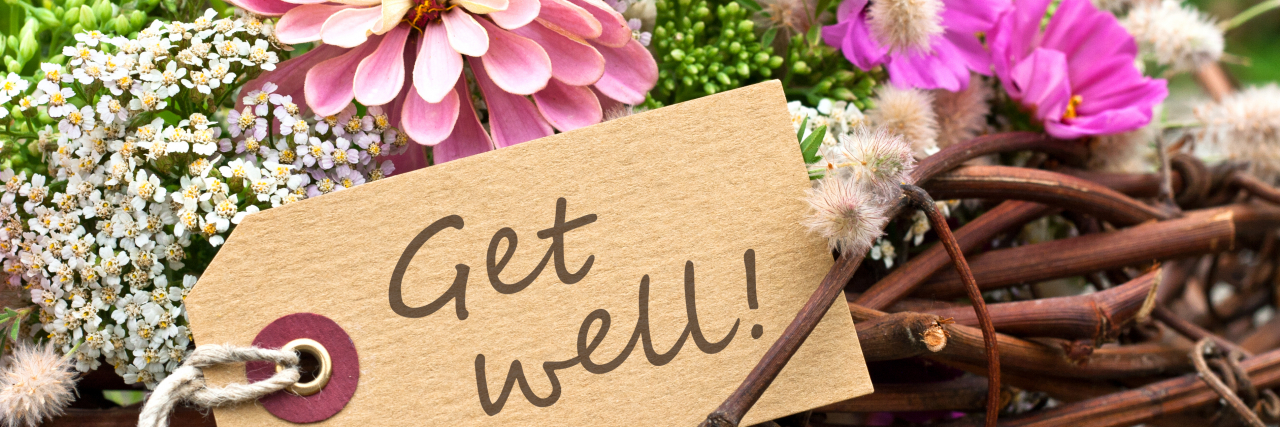Recently, like so many of us, I came down with a “mild” case of COVID (which was still pretty awful). After thinking I’d recovered, I then found myself in a state of chronic illness with the “long haul” variety.
Unfortunately, as a result of that experience, I’ve come to remember what it’s like to be sick in our society. How few people genuinely know how to show up and be supportive, even when they are loving and have the best of intentions. To be fully honest, until I became chronically ill at the ripe old age of 26, I had no idea how to do this, myself.
When someone we care for is unwell, we may genuinely wish to help them, and truly believe we have all the perfect answers. We are conditioned to jump in reflexively with our great advice, a long list of supplements and things that work for us, and all the other culturally acceptable (yet deeply invalidating) “feel betters” we can muster.
Yet, if I’ve learned anything from being disabled for most of the past decade, it’s that this “help” is actually about us and our own needs, not them and theirs.
What someone who is suffering truly needs is not our advice or wishes for them to feel differently: it’s our grounded, safe, and loving presence. Anything else is basically asking them to do our emotional labor for us, on top of being seriously ill, and heavily burdened with their own.
We live in a world that does not allow much space for pain and illness, especially of the chronic variety. With an estimated 1 in 10 COVID-19 survivors now struggling with long haul COVID, perhaps it is the perfect opportunity to start learning how to really show up for one another. To create a more inclusive and loving world for all.
True empathy is less about telling someone to “get well soon,” and more about just simply being present and allowing them to be as they are. Projecting where we think they should be onto them, regardless of our good intentions, actually causes more suffering. It’s future tripping at best, and a complete invalidation of their reality, at worst.
It also doesn’t help them to feel better, it only really helps us feel better about ourselves. This perpetuates the long, dark history of suffering in our society, of marginalization of people with disabilities. I am hopeful we would all like to be a part of changing things, if we are capable of seeing our flaws and staying open to learning. We don’t need to beat ourselves up about any of this, we just need to learn to do better, now that we know.
When we feel the impulse to fix someone who is unwell, we can learn to stop, turn inwards, and ask ourselves how their suffering makes us feel (totally valid). To be with that answer, just as it is, with all the fear and helplessness we probably feel. To learn to pause and reflect back to that person the depth of their experience, here in the present moment. It’s as simple as saying “that must be so hard.” It’s as complex as owning our own fears, and acknowledging they probably feel even more.
Most people experiencing a serious illness are in shock and grieving. Their life may have just been ripped out from under them. They are facing not only their present suffering, but the deep uncertainty of when they will recover, if ever (not all illnesses “get well”). What truly helpful support looks like is becoming a safe person for them to be with in that pain. Which requires putting our own needs for them to stop suffering, however noble, in the backseat for now.
After all, what every last one of us needs in our pain (regardless of illness) is to be seen, heard, and accepted so we can learn to accept it for ourselves. Modeling this to someone who is sick, can really help relieve some of their suffering. Which is probably what we all meant to do, in the first place, after all.
While this may be a hard truth to swallow, it’s also an opportunity to engage in a revolutionary practice to help heal this world. To learn to be with our suffering and nurture ourselves in it. Which allows us to extend that same grace to others, in their own. It’s what true support looks and feels like, and I’m convinced it could probably heal the whole world. And the good news is, that can start right now, with your own.
Getty image by Cora Mueller.

